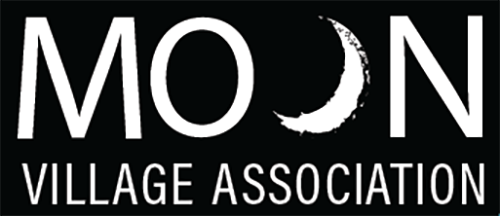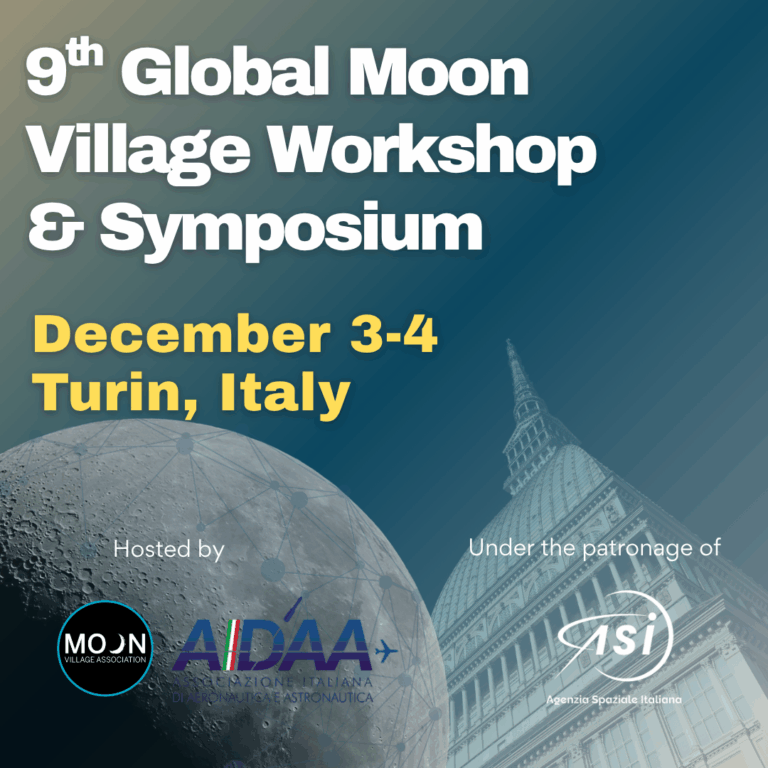
Press Release – Global Expert Group on Sustainable Lunar Activities (GEGSLA) 1st Public Webinar
Vienna, Austria – September 13, 2021
The near future will see a multitude of lunar missions through the efforts of both space agencies and commercial stakeholders’. However, the current lack of coordination mechanisms for lunar activities challenges future missions and it could lead to unintentional harmful interference, especially in light of the increased global interest in specific areas like the lunar South Pole. The need to preserve the peaceful uses of space and the desire to begin a new era of sustainable space exploration urges the consideration of approaches that promote future lunar sustainability or recommended practices for upcoming lunar activities.
For this reason, in November 2020, the Moon Village Association (MVA) launched the Global Expert Group on Sustainable Lunar Activities (GEGSLA) to increase international cooperation towards the sustainability of lunar activities. GEGSLA aims to strengthen coordination mechanisms and individuate present and future challenges of lunar missions by leveraging contributions from major space community stakeholders, including space
agencies, private companies, academia, and international organizations. GEGSLA also intends to serve as a platform to exchange information and views within the space community on critical issues for the peaceful and sustainable conduct of lunar activities and promote outreach efforts regarding the activities of the Group through the involvement of the public.
The Group started its work with a Kick-off Meeting on February 25, 2021. It is now composed of a Secretariat, 38 members, and more than 150+ observers from major stakeholders in lunar activities, with the main deliverable being a “Recommended Framework and Key Elements for Peaceful and Sustainable Lunar Activities,” to be
submitted to the United Nations Committee on the Peaceful Uses of Outer Space (UNCOPUOS) in 2023.
The first GEGSLA Public Webinar – Towards Sustainable Lunar Activities, will take place September 30 at 15:00 CEST to inform the public about the recent developments of the group. It will illustrate planned lunar missions for 2022, address scientific considerations, and discuss urgent sustainable lunar exploration and utilization issues.
This event will be a unique opportunity to learn more about how GEGSLA and its recently formed subgroups (on Information Sharing; Safe Operations and Lunar Environmental Protection; Compatibility and Interoperability; and Responsible Governance) work together towards a new era of lunar exploration and utilization.
More information can be found at:
https://moonvillageassociation.org/event/gegsla-public-webinar-sustainable-lunar-activities-status-way-forward/
Giuliana Rotola
GEGSLA Implementation Support Officer
Email: gro.n1772632650oitai1772632650cossa1772632650egall1772632650ivnoo1772632650m@alo1772632650tor.a1772632650nailu1772632650ig1772632650
About the Moon Village Association
The Moon Village Association (MVA) is an international non-governmental organization (NGO) based in Vienna, founded in 2017. Its goal is the creation of a permanent global informal forum for stakeholders like governments, industry, academia and the general public interested in the development of the Moon Village. The MVA is the assembling of all efforts from private industry, governments and others aimed to explore and use the Moon in a sustainable manner. The MVA fosters cooperation for existing or planned Moon exploration programs, be they public or private initiatives. It comprises more than 800 participants in MVA activities and 27 institutional members from more than 60 countries, representing a diverse array of technical, scientific, cultural, and interdisciplinary fields. The MVA partners with non-space organizations to promote international discussions and
formulation of plans to foster the development of the Moon Village, and is creating international, national, and regional networks to engage civil society around the world. The Moon Village Association’s mission is unique, bridging together both spacefaring and non-spacefaring nations offering them the opportunity to play a role in its realization. There is no other organization on the international scene having such a mission.
.



